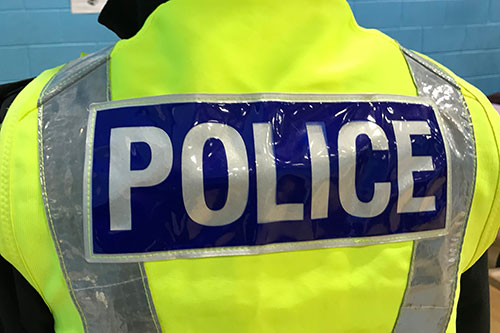Thursday March 2nd 2023

Police Scotland’s roll-out of Naloxone to operational officers in The Lothians and Scottish Borders is nearing completion.
Pouches containing two intra-nasal Naloxone sprays, plus casualty information cards are being distributed for the first time to all constables, sergeants and inspectors, numbering around 630 in the division.
Naloxone is an emergency first aid treatment for use in a potentially life-threatening overdose situation. It works by reversing the respiratory suppression caused by opioids/opiates and can buy the casualty critical minutes until ambulance clinicians arrive on scene.
Officers complete an online training course before receiving the first aid equipment, which is worn alongside their standard issue equipment as they go about their duties.
Police Scotland officers already undertake in-depth first aid training, and the carriage and administration of Naloxone is an extension of their first aid skills.
Chief Superintendent Catriona Paton, Divisional Commander, said:
“The role of policing is vast and varied and preservation of life lies at the very core of our duties. Equipping our officers here in The Lothians and Scottish Borders with Naloxone enhances their existing first aid skills and provides further opportunities to provide life-saving interventions.
“Drug misuse can have a devastating effect on individuals, families and entire communities. By working alongside partner agencies, I very much hope the carriage of Naloxone by our officers helps to saves lives and positively change attitudes.”
Police Scotland piloted the carriage and use of Naloxone by its officers in 2021 as part of a public health approach to addressing the country’s drug death rates.
Since officers in Scotland began carrying Naloxone, it has been administered at least 128 times with positive outcomes on all but 5 occasions. In 4 out of the 5 incidents, officers suspected the individual was already deceased, however, they used Naloxone to give the casualty every possible chance at recovery. In the fifth case the individual did not regain consciousness and later died in hospital.
The circumstances leading to Naloxone administrations by police have been varied, and have included incidents where officers have discovered unconscious casualties during patrols, or been alerted to an overdose by a member of the public. Other administrations have involved people in police custody, during police Public Order incidents and the execution of a search warrant. Naloxone has also been administered to people intending to complete suicide.
In 2021, there were 1,330 drug related deaths in Scotland, a drop of one per cent on the previous year (a reduction of nine deaths) which reflected the first time since 2013 there has been a recorded decrease. However, the figure remains the second highest annual total, and Scotland has the highest drug related deaths rate in Europe, with a rate 3.7 times higher than the UK average.
Police Scotland’s work to introduce Naloxone as part of standard issue kit to its officers has been supported by the Scottish Government, and a number of other key stakeholders.
Tweet Share on Facebook